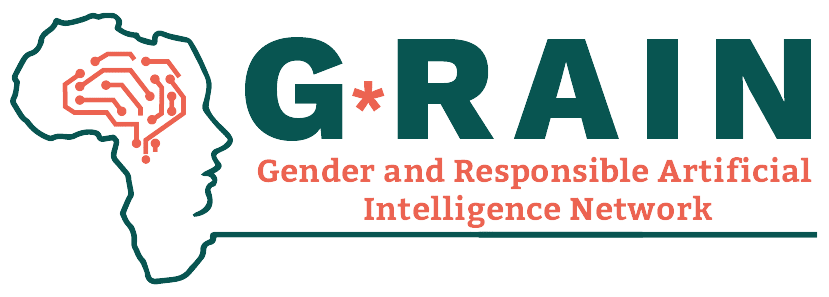Country: Uganda
Project summary
Machine learning technologies such as automatic speech recognition systems, language models and machine translation systems are being developed to operate in environments where gender and other forms of prejudice and discrimination are present.
These biases are present in the datasets that are used for model training and choices around machine learning models. The ML models developed end up reinforcing the biases embedded in the training data.
This research will focus on a data-driven research approach to conduct a scoping study on a deeper understanding of gender bias and inclusivity of artificial intelligence tools on the African continent. The results will be used to develop a framework and guidelines for mitigating gender bias in RSA systems through equity in data collection and model building.
Finally, this work will develop a model governance framework to address ethical and gender issues around the data and algorithms from which RSA systems are built.
Project implementation area : Uganda
Project sponsor : Dr. Joyce Nakatumba-Nabende
Joyce Nakatumba-Nabende is a lecturer in the Department of Computer Science. She heads Makerere's artificial intelligence laboratory, where she has worked on research projects aimed at developing and applying artificial intelligence and machine learning methods and tools to improve the quality of life, particularly in developing countries. She is a board member of Data Science Africa and a member of the ACM Education Advisory Committee.
Members of the team
Andrew Katumba
Andrew KatumbaAndrew Katumba is a lecturer in the Department of Electrical and Computer Engineering at Makerere University. His current research focuses on the application of machine learning and data science techniques in areas relevant to the African context. Key examples include: 1) the development of a machine learning-assisted smartphone platform for cervical cancer diagnosis, 2) the development of a machine learning-assisted portable lung ultrasound system, 3) the development of a diagnostic platform for plant diseases 4) the development of machine learning-assisted NLP tools for low-resource languages.
Dr Peter Nabende
Peter Nabende is a Senior Lecturer in the Department of Information Systems in the School of Computing and Informatics Technology at Makerere University. His research interests include natural language processing, artificial intelligence applications for the developing world and data mining. He has worked on research projects aimed at developing resources and models for applications in resource-poor African contexts. He has also developed a short tutorial on removing or mitigating bias in AI training data.
Eric Peter Wairagala
Eric Peter Wairagala is a research software engineer at the AI and Data Science Research Laboratory at Makerere University. Highly motivated and passionate, he is studying for a master's degree in computer science at Makerere University, specialising in AI and data science. His research focuses on the fields of computer vision, machine learning and natural language processing, with a particular emphasis on responsible AI. He collaborates with the Masakhane, Data Science Africa and Deep Learning Indaba communities, which aim to bridge the gap between AI and machine learning in Africa.
Tobius Saul Bateesa
Tobius Saul Bateesa is a research assistant and software engineer at Makerere's Artificial Intelligence and Data Science Lab. At the Makerere AIR Lab, he has worked on projects that use data science and artificial intelligence to solve problems in developing countries in areas such as agriculture, health, urban planning, ethics and cultural preservation. He is currently pursuing a Masters in Data Science at the University of East London, where he continues to develop his expertise.
Carol Kantono
Caroline Kantono is a research assistant in the Artificial Intelligence and Data Science Laboratory at Makerere University. She is pursuing a career in data science after obtaining a Master's degree in Business Intelligence and Analytics at Neu-Ulm University of Applied Sciences. Her research focuses on natural language processing (NLP) and artificial intelligence, where she has completed her research project on sentiment analysis.
Description of the institution
The Makerere Artificial Intelligence Lab is a research laboratory at Makerere University specialising in the application of artificial intelligence and data science to problems in the developing world. The Artificial Intelligence Lab has over a decade of experience in artificial intelligence research with a focus on application to local problems. Driven by our mission "Advancing artificial intelligence research to solve real-world challenges", and through strong partnerships with national organisations and university departments such as the Language Institute, we have expertise in (a) developing tools for collecting and curating datasets for downstream NLP tasks, (b) the construction of computer models for downstream natural language processing tasks, (c) the construction of computer models for image crowdsourcing and real-time monitoring, (b) the application of computer vision for the diagnosis of crop pests and diseases.
Link to the institution : https://air.ug/
Not that long ago, people lived and functioned in tight communities. Every vendor knew their customers personally and could make...
This Machine Learning Glossary aims to briefly introduce the most important Machine Learning terms - both for the commercially and...





